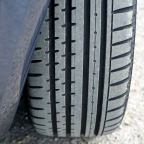
Never Too Late: Your Guide to Learning to Drive with Confidence
Learning to drive in your twenties, thirties or later can feel a little bit different to getting started as a teenager. If you’ve only just started taking lessons, it’s likely to be out of necessity for work or personal circumstances. But people learn to drive as adults for many reasons, so you’re certainly not alone.
With confidence and perseverance, you can learn efficiently and effectively too. If you’d like to get started soon, here’s what you need to know about learning to drive over 25.
Find the right instructor
Firstly, finding an instructor that you’re comfortable with is critical. Look for a driving school or an independent instructor who has experience teaching learners of various ages, not just school leavers.
One of the most important decisions to make before you start learning is whether you’d like to drive an automatic or manual car. If you learn in an automatic car, you’ll need to take another test to drive manual cars. But learning in a manual gives you a full UK driving licence covering both types.
A good instructor will be patient and adaptable. They’ll understand that you might have a different learning style compared to a younger student, and they should support you with encouragement and humour.
Practise outside of lessons
Driving lessons are essential, but they’re only part of the learning process.
If you have access to someone else’s car and a willing friend or family member, you have more opportunities. With their permission, you can practise under different conditions and get used to new routes. This is a great time to refine your skills and get real world experience.
Provided that your friend or family member has had their licence for at least three years, you can take out learner driver insurance and drive their car with full peace of mind.
Learn the theory, not just the practical side
The driving theory test teaches you about road rules and hazard perception, helping you to keep yourself and other road users safe. This component can be a challenge for older learners who haven’t studied for exams in a long time, so don’t underestimate it!
Take time studying the Highway Code and test your knowledge using free online practice tests. There are plenty of apps and websites available, specifically designed to help you pass this element of the test. Having a solid understanding of the rules will make the practical side so much easier.
Manage your expectations
You may feel pressured to learn faster or pass on your first try, especially if most of your friends already drive.
However, it’s very important to be patient with yourself. Everyone learns at their own pace, so try not to let comparison get in the way of your own progress. Focus on becoming a safe and confident driver, not on rushing to get your licence.
Celebrate success while you’re learning, like mastering parallel parking or feeling comfortable in rush-hour traffic. Smaller wins contribute to a massive sense of achievement when you pass your practical test. And once you’ve got your licence, the real fun starts!













